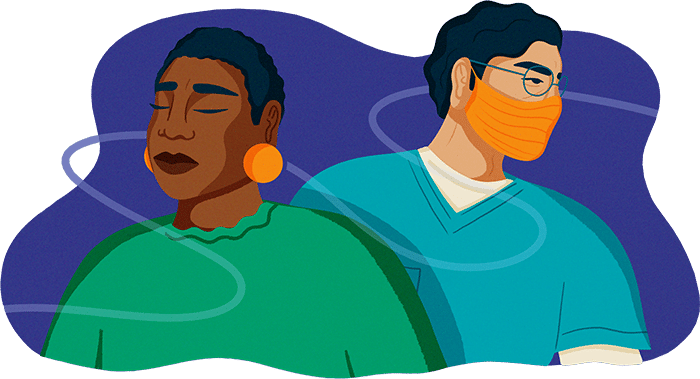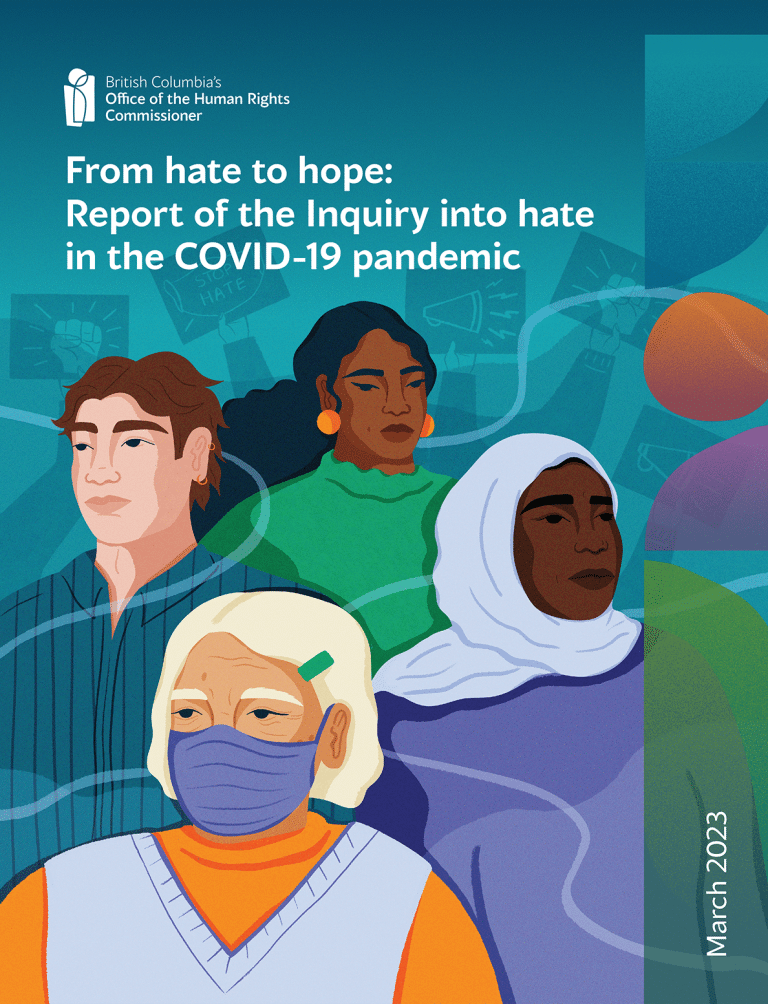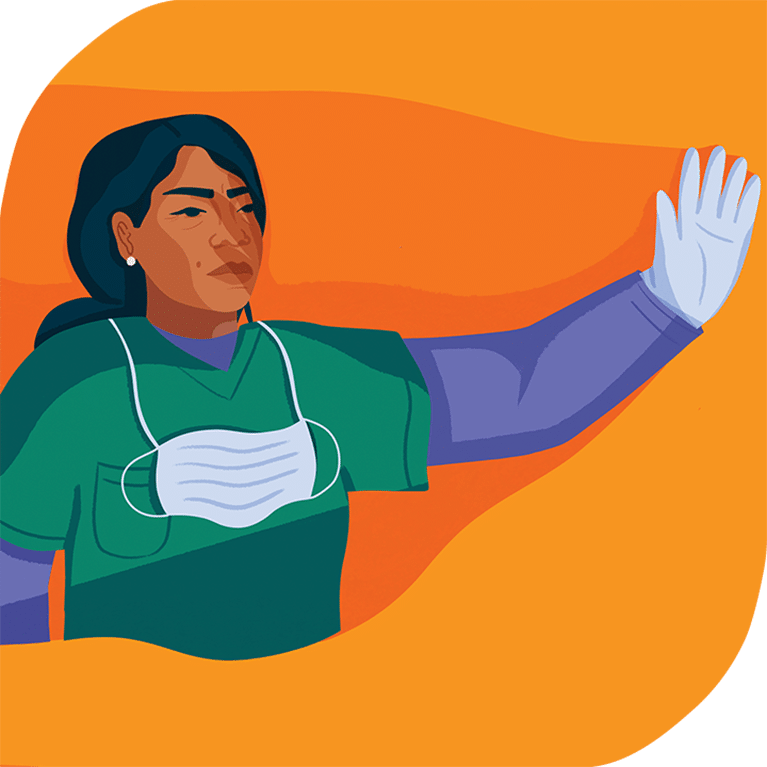Disclaimer:
This summary highlights key learnings from Section 4 of the report. Download our full report (PDF, 23MB) for more information and details. You may also click on a heading below to open up that section of the PDF report.

Emergency management planning

Governments can declare an emergency when there is an event that puts people at risk. Declaring an emergency means the government can change the rules or make new rules to help them respond quickly to the emergency. Emergency Management BC is the organization that coordinates all the activities involved in preparing for emergencies in B.C.
The emergency planning that happened during the pandemic would be improved by a human rights-based approach. This approach predicts and plans to help groups who might be more impacted than others during a crisis and work with them to build an anti-hate plan.
A human rights-based approach also requires people in public roles to stand up against hate when it occurs. They should promote working together and looking after each other.
Governments’ emergency response to increases in hate
During the pandemic, governments worked to stop hate.
-
The one-time funding was not enough to prevent or respond to the increase in hate. Shift BC, a program that helps people leave hate-based groups, didn’t receive any additional money from the government.
-
Many people experienced increase in stress, anxiety and fear during the pandemic, but most people didn’t access mental health services and supports.
-
Education can play a key role in preventing hate. Education about hate is not a part of the K–12 curriculum in B.C. This education is needed in schools. It is also needed for people working in health care, law enforcement and government. Education about hate should be developed with and by the communities most impacted by hate.

Restorative approaches to hate as a preventative measure
Restorative approaches are ways of trying to repair harm between people. These approaches focus on listening, taking responsibility and working to put things right.

For this inquiry, Dr. Sarah Morales prepared a report about how the Island Hul’qumi’num peoples work together to prevent and respond to harm. It is based on four teachings:
- respect differences
- show love
- support one another
- be truthful and expose harm
Island Hul’qumi’num peoples are responsible to their families, and also to others in their communities, people outside their communities and strangers. They are especially responsible to those more vulnerable, such as children. This responsibility includes respecting each others’ differences, showing love, supporting one another and being truthful and/or exposing harms.
When someone does something wrong that harms someone else, the Island Hul’qumi’num peoples follow these five steps:
- Identify the families of the wrong-doer so they can be involved.
- Ask for help from anyone who may have something to contribute to a solution. This might include speakers to speak on behalf of the families.
- Decide together on the best response. The families may agree on a decision maker if they can’t decide on a solution together.
- Make things right. Families of the wrongdoer are responsible for putting things right. This might mean giving a meaningful gift or helping in a practical way.
- Welcome the wrongdoer back into the community. This is a commitment to the wrongdoer that often includes work in the community to keep them connected and helps them learn what it means to “live a good life.”
What is restorative justice?
Restorative justice is like the Island Hul’qumi’num people’s way. It focuses on mending relationships, responsibility, putting things right and community-based solutions.
In Canada, restorative justice has been part of government programs and policies for over 40 years. B.C.’s provincial government funds over 65 community-based restorative justice programs. Restorative justice programs include mediations, conferencing, circles and panels.
Restorative justice is used to respond to crimes and can also be used to prevent them. For example, restorative justice can be used when there are growing tensions, to support people at risk of joining hate-based groups or to help people who want to change.
Programs in B.C., Canada and other countries are working to support people who are at risk of joining or are trying to leave hate-based groups involved in extreme violence. These programs use close relationships, safe spaces, positive community connections and help find housing, work and health care.
Restorative justice is a positive option for addressing hate. It can be used to respond when a hateful act is not considered a crime, when hate is not reported to the police or when the person or community experiencing hate asks for this option.
Some benefits of a restorative justice approach include:
For the person who experienced hate
- The situation does not need to be reported to the police or be considered a hate crime.
- They can talk about the impact of hate on themselves and their community.
- Family, friends and others from the community can participate and provide support.
- They hear the person who caused harm take responsibility.
- The solution can support their community or protect others from harm.
For the person who spoke or acted hatefully
- The situation does not need to be reported to the police or be considered a hate crime.
- They meet and get to know the people they harmed. This makes it less likely they will continue to speak or act hatefully.
- They have an opportunity to put things right rather than just be punished.


Inquiry report (full)
The full Inquiry report (PDF, 23MB) is available for download. The over 400-page-long report (including appendices) details the Inquiry process, community stories, investigation results and the Commissioner’s recommendations for how we can collectively move forward.
For a quick overview, see the plain language summaries below or our executive summary, also available in multiple languages.

